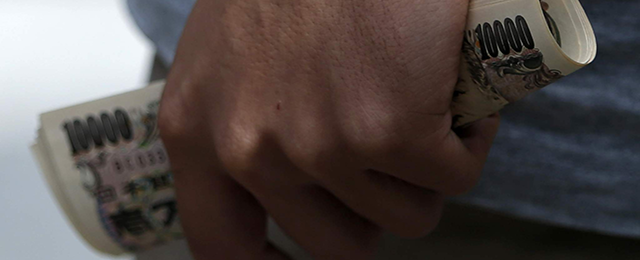The announcement that the Japanese economy had slipped back into recession took markets by surprise on Monday. Most analysts had forecast a quarter of moderate growth for the world´s third largest economy, and the announcement of a contraction of 1.6% has been viewed by some a clear sign that the QE employed by the BOJ earlier this month has failed to have the desired effect.
The latest results from Japan are likely to heighten debate within the Eurozone with regards to the policy prescriptions available to the ECB. There have been growing calls for the ECB to increase the scope of its QE programme, but as yet, decisive action has been opposed by certain member states.
The Japanese experiment has yet to yield tangible results for the country´s faltering economy and the news that the country has fallen into recession will likely provide further ammunition for naysayers within the EU who are against “unconventional stimulus measures.”
Mario Draghi used his quarterly address to reaffirm his commitment to enlarging the EU balance sheet. The ECB President was keen to stress that neither monetary nor fiscal policy could alone serve as the catalyst for recovery, but stressed that structural reforms needed further implementation, noting that “ insufficient progress in structural reforms in euro area countries constitutes a key downward risk to the economic outlook.”
Draghi further highlighted the ECB´s commitment to “scale the total magnitude of our measures – lending operations as well as outright purchases – up to a size that can deliver the intended support to inflation and the recovery of the euro area economy.” He added this could happen in the form of the ECB buying up sovereign bonds. That pronouncement provoked a rally on European markets.
Many Japanese analysts are urging against drawing any doomsday conclusions from the latest set of data. The Government´s decision to employ a tax hike from 5%-8% in a bid to boost inflation has damaged an already weak consumer demand. Tokyo chose to implement the tax hike before the economy had fully emerged from a deflationary position, and there is widespread expectation that Prime Minister Abe will now announce the postponement of a further hike-to 10%-scheduled to come into force in October 2015.
Analysts say that the latest data were weak primarily due to a drop off in private inventory purchases, and they expect a rebound in Q4.
“Despite these poor figures, we don´t see the need to revise our projections for Q4. There were a number of factors responsible for the surprising Q3 figures, but the main one was a drop in the contribution from private inventory,” according to Yuichiro Nagai at Barclays.
Nagai added that despite being in technical recession, Prime Minister Shinzo Abe´s government is likely to stick to the policies outlined, albeit at a slower pace.
“It is clear that the government understood that these figures were coming. That is why they have been taking measures to delay any further hike in the consumption tax. While there is some concern at the latest figures, the government still enjoy support and are expected to continue with their current policies. If we have a snap election, we would expect them to win and continue on the current course,” he added.






Be the first to comment on "Japan recession gives ECB food for thought"